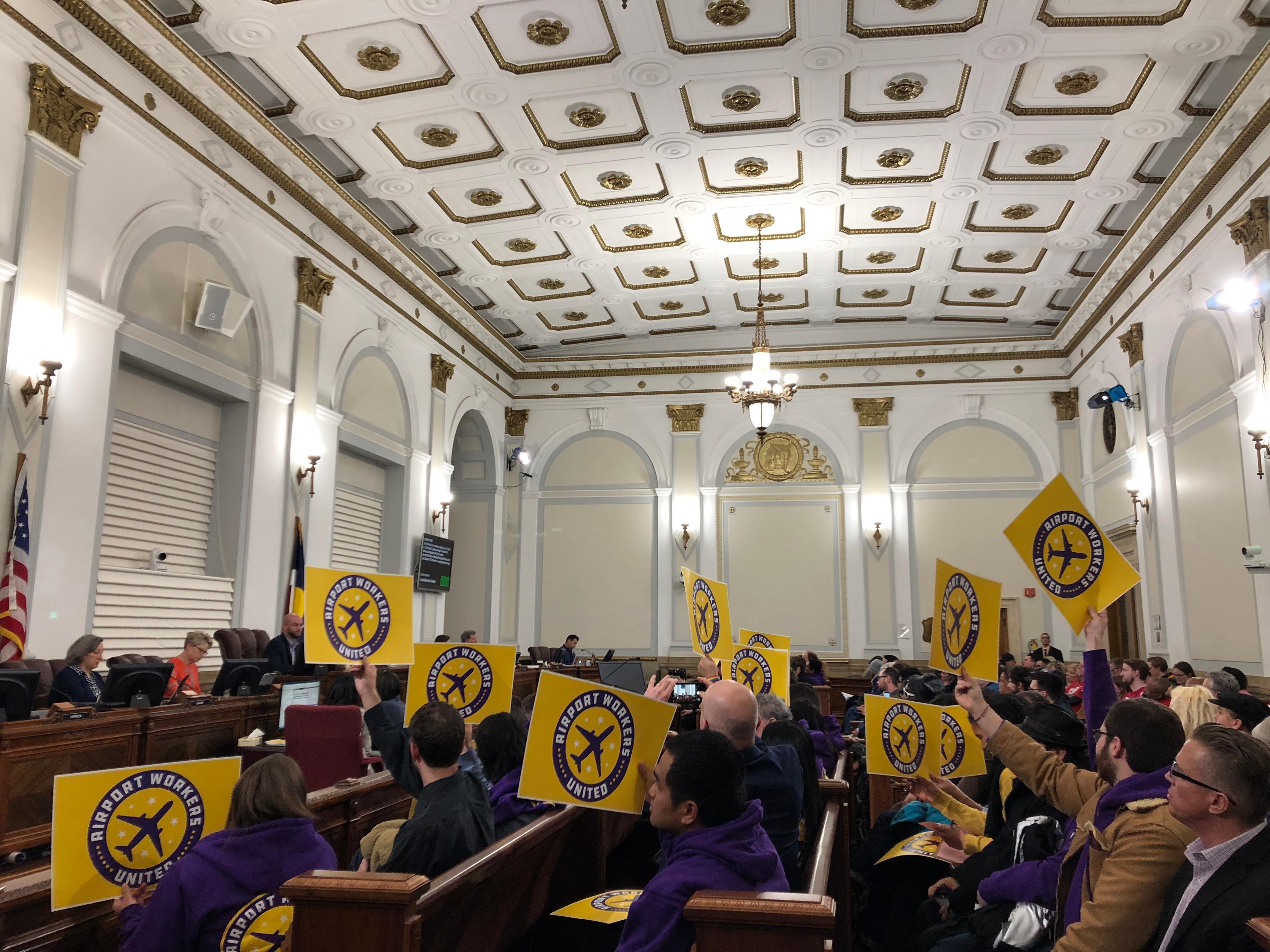On the same night that Denver City Council members voted to give themselves and the mayor higher salaries, the legislative body essentially signed off on a $15 minimum wage for city workers and some city contractors.
The council signaled Monday that it will unanimously pass the new wage for lower-rung city employees next week. Workers will see their hourly rate increase each year until it reaches at least $15 in 2021. Companies that provide service to the city directly or on city property will have to pony up as well.
The new normal comes after a surge of advocacy from local labor unions, a national movement to provide workers with livable wages, and months of negotiations between union leaders, Mayor Michael Hancock's administration and City Councilwoman Robin Kniech.
Later on Monday, with much less fanfare, the Council gave themselves and the mayor the maximum raise allowed -- 10 percent over the next four years. The move will push city council salaries to about $101,000 ($113,000 for the council president). The mayor will make about $188,000 when all is said and done.
That new normal comes after, well, the status quo of approving raises for elected officials every four years.
The change doesn't start until July -- after the municipal election -- meaning current elected officials aren't guaranteed to benefit.
Still, the irony was not lost on City Councilman Kevin Flynn, who voted against the pay hike for politicians. Unlike the 100 or so workers in the crowd at the meeting, council members don't climb the career ladder, he said.
"I haven't checked my messages lately, but the Los Angeles City Council isn't looking to recruit any of us here," Flynn said. "We don't move around from job to job. We are here as temporary placeholders and we are paid very well for it."
City Councilman Rafael Espinoza, City Councilwoman Kendra Black and City Councilman Wayne New also voted against the council raises, which did not receive a public hearing.
The $15 minimum wage, cheered on by a horde of airport workers in the crowd at city hall, overshadowed the raises for elected officials Monday.
Kniech, who ushered the livable wage bill through the city council, said it was "probably one of the most impactful pieces of legislation that we're gonna pass this year."
"They're behind each of these places in our city that are so successful," Kniech said. "And yet, as we know, the story of our nation and our state is that the workers who do that work behind the scenes are not always sharing in the success of our economy."
More than 1,800 city employees, or a little under 14 percent of the workforce, will benefit, according to the Hancock administration, which initiated the bill.
Colorado's minimum wage is $11.10 an hour. Denver cannot change that, but the council asked the state legislature last week to pass legislation that would let cities and towns decide on a livable wage for themselves.
Still, Espinoza was frustrated with the pace of ensuring a livable wage -- especially, he said, when the airport, a massive public employer, was spending $14 million on a sign.
"In my book this shouldn't have taken as long as it did or been as much work as it was to get here," he said.
This article was corrected to reflect the fact that Councilwoman Kniech was not the bill's sponsor. Mayor Michael Hancock initiated the bill.













